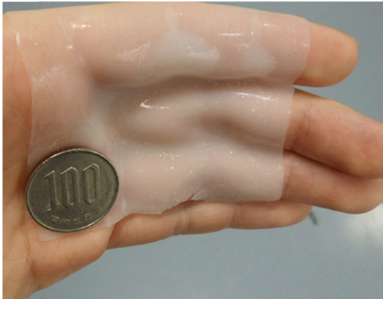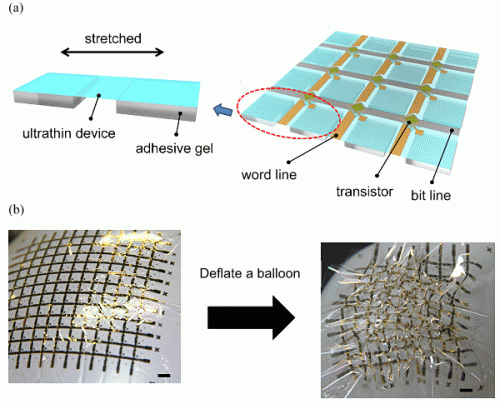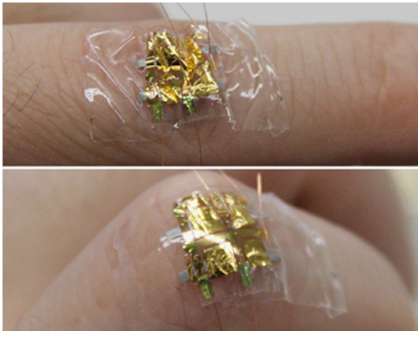Japan scientists develop micro-fine adhesive sensors

Scientists in Japan have developed a sticky sheet of tiny sensors that can be put directly on moving joints, beating hearts or other living tissues.
The invention opens up the possibility of implanting almost unnoticeable sensors inside the body, letting doctors keep a close eye on a dodgy heart, for example.
"Just by applying to the body like a compress, our novel sheet sensor detects biometric information extremely accurately," researchers at the University of Tokyo said in a statement Friday.
The secret is an adhesive gel that prevents a fine grid of sensors from slipping, even if the thing they are in contact with is moving, said the team led by professor Takao Someya at the Department of Electrical Engineering and Information Systems.
Conventional devices often use silicon and other relatively rigid materials, which can be uncomfortable for wearers.
Sensors are printed at 4 millimetre (a sixth of an inch) intervals on very thin plastic. This allows the manufacturer to get as many as 144 individual sensors on a sheet just a little bigger than an after dinner mint.
Their proximity to the organ or joint they are measuring means they are able to take highly accurate readings.
The sticky sheets could be used in healthcare or sports science, the team said.
"Although we are currently at the animal experimentation stage, this compress-like sensor has been successfully attached even to internal tissues, such as a rat's heart," the team said.

"In the future, this technology will be applied to internally implanted electrical systems and the scope of application for electrical devices will increase."
The study, done with backing by the governmental Japan Science and Technology Agency, was published in Nature Communications in its December 19 edition.

More information: A strain-absorbing design for tissue–machine interfaces using a tunable adhesive gel, Nature Communications 5, Article number: 5898 DOI: 10.1038/ncomms6898
Journal information: Nature Communications
© 2014 AFP





















